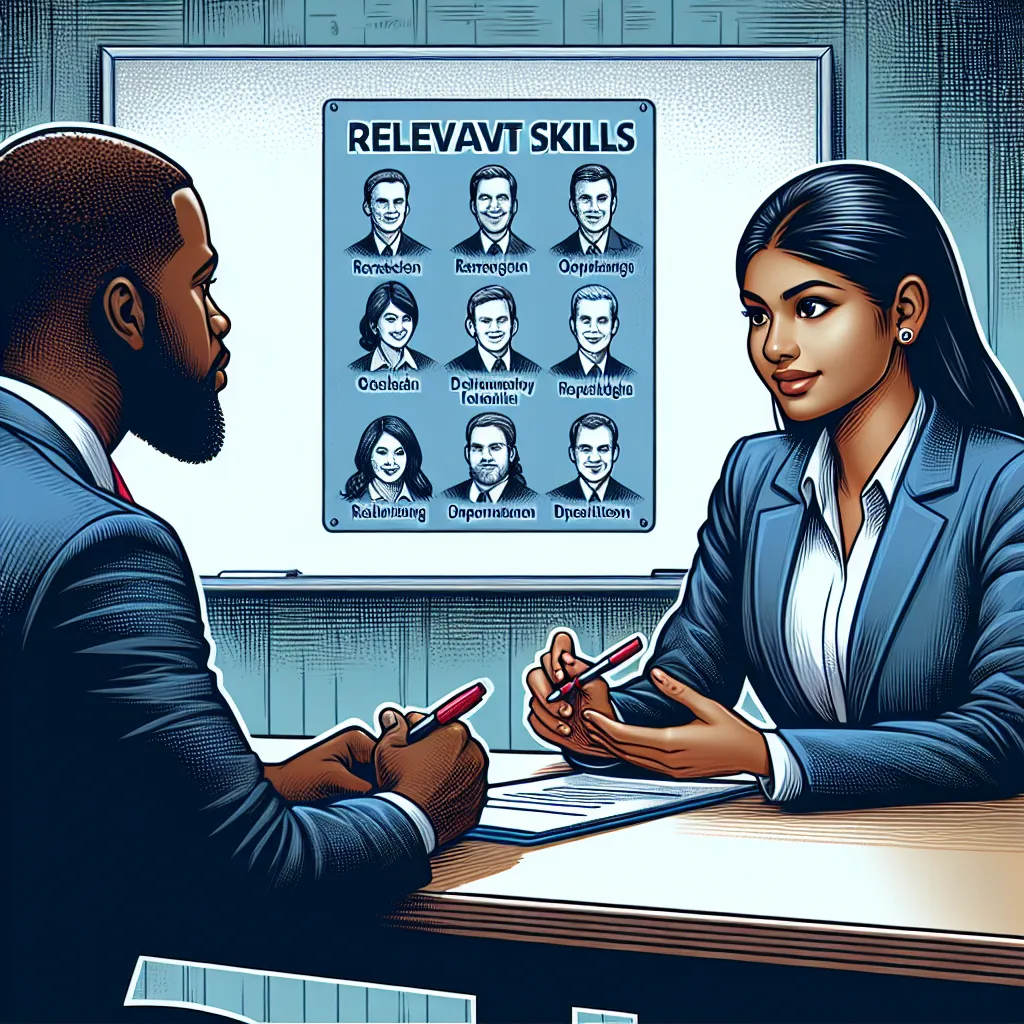When it comes to job interviews, one of the most crucial aspects is effectively communicating your job responsibilities. This skill can make a significant difference in how potential employers perceive your experience and capabilities. In this guide, we’ll explore various strategies to help you articulate your job duties clearly and impressively during an interview.
Understanding the Importance of Explaining Job Responsibilities
Before diving into the strategies, it’s essential to grasp why explaining your job responsibilities is so crucial in an interview setting. Employers use this information to:
- Assess your relevant experience
- Understand your level of expertise
- Gauge your potential fit for the role they’re offering
- Evaluate your communication skills
The Interviewer’s Perspective
When you’re explaining your job responsibilities, interviewers are typically looking for:
- Clarity: Can you articulate your roles clearly?
- Relevance: How do your past responsibilities relate to the position you’re applying for?
- Impact: What were the outcomes of your work?
- Problem-solving abilities: How did you handle challenges?
- Leadership and teamwork: How did you collaborate with others?
 Interview Explanation
Interview Explanation
Strategies for Effectively Explaining Your Job Responsibilities
1. Use the STAR Method
The STAR method (Situation, Task, Action, Result) is an excellent framework for structuring your responses:
- Situation: Set the context for your responsibility
- Task: Explain what was required of you
- Action: Describe the steps you took
- Result: Share the outcomes of your actions
Example:
“In my previous role as a Marketing Coordinator, we faced declining engagement on our social media platforms (Situation). I was tasked with revamping our social media strategy (Task). I conducted thorough market research, created a content calendar, and implemented a new posting schedule with more interactive content (Action). As a result, we saw a 50% increase in engagement and a 30% growth in followers within three months (Result).”
2. Quantify Your Achievements
Whenever possible, use numbers to quantify your responsibilities and achievements:
- “Managed a team of 15 sales representatives”
- “Increased customer satisfaction ratings by 25%”
- “Reduced project completion time by 30%”
3. Align Your Responsibilities with the Job Description
Review the job description for the position you’re interviewing for and tailor your explanation to highlight relevant responsibilities:
- If the new role requires leadership skills, emphasize your experience in team management
- If it’s a customer-facing position, focus on your customer service responsibilities
4. Use Action Verbs
Start your sentences with strong action verbs to make your responsibilities sound more dynamic:
- “Spearheaded a new product launch”
- “Streamlined the onboarding process”
- “Negotiated contracts with key suppliers”
5. Provide Context
Give enough context to help the interviewer understand the scope and importance of your responsibilities:
“As the sole IT support for a 50-person startup, I was responsible for maintaining all hardware and software systems, which was crucial for ensuring uninterrupted business operations.”
Common Mistakes to Avoid
When explaining your job responsibilities, be careful to avoid these common pitfalls:
- Being too vague or general
- Focusing only on daily tasks without highlighting achievements
- Overusing jargon or technical terms
- Downplaying your contributions
- Exaggerating your role or responsibilities
Handling Questions About Responsibilities Outside Your Expertise
Sometimes, interviewers may ask about responsibilities that were not part of your job description. Here’s how to handle such situations:
- Be honest: “That wasn’t part of my core responsibilities, but I’d be interested in learning more about it.”
- Highlight transferable skills: “While I didn’t directly handle that, I have experience in similar areas that could be applicable.”
- Show willingness to learn: “I haven’t had the opportunity to work on that yet, but I’m eager to expand my skillset in that direction.”
Follow-up Questions and Sample Answers
Here are some common follow-up questions about job responsibilities and how to answer them:
-
Q: “What was the most challenging responsibility in your previous role?”
A: “The most challenging responsibility was managing conflicting priorities. I developed a system to prioritize tasks based on urgency and impact, which helped me meet all deadlines effectively.” -
Q: “How did you handle responsibilities that were outside your job description?”
A: “I saw those as opportunities for growth. For instance, when our team needed someone to lead a client presentation, I volunteered despite it being outside my usual tasks. This not only helped the team but also improved my presentation skills.” -
Q: “Can you give an example of a responsibility where you exceeded expectations?”
A: “In my role as a customer service representative, I was tasked with resolving customer complaints. I went beyond just solving issues by implementing a follow-up system to ensure customer satisfaction, which led to a 40% increase in positive feedback.” -
Q: “How do you prioritize your responsibilities when you have multiple urgent tasks?”
A: “I use a combination of urgency and impact to prioritize tasks. I also communicate with my team and managers to ensure I’m aligned with overall goals and deadlines.” -
Q: “How do you ensure you’re meeting all your job responsibilities effectively?”
A: “I maintain a detailed task list and regularly review my job description to ensure I’m covering all areas. I also seek feedback from my manager and colleagues to identify areas for improvement.”
 Job Responsibilities Infographic
Job Responsibilities Infographic
Conclusion
Effectively explaining your job responsibilities in an interview is a crucial skill that can significantly impact your chances of landing the job. By using strategies like the STAR method, quantifying your achievements, and aligning your experience with the job description, you can present your responsibilities in a compelling way. Remember to be honest, provide context, and highlight your achievements. With practice and preparation, you can confidently communicate your value to potential employers.
For more tips on acing your job interview, check out our articles on how to discuss your leadership skills in an interview and how to talk about your experience in customer service.




